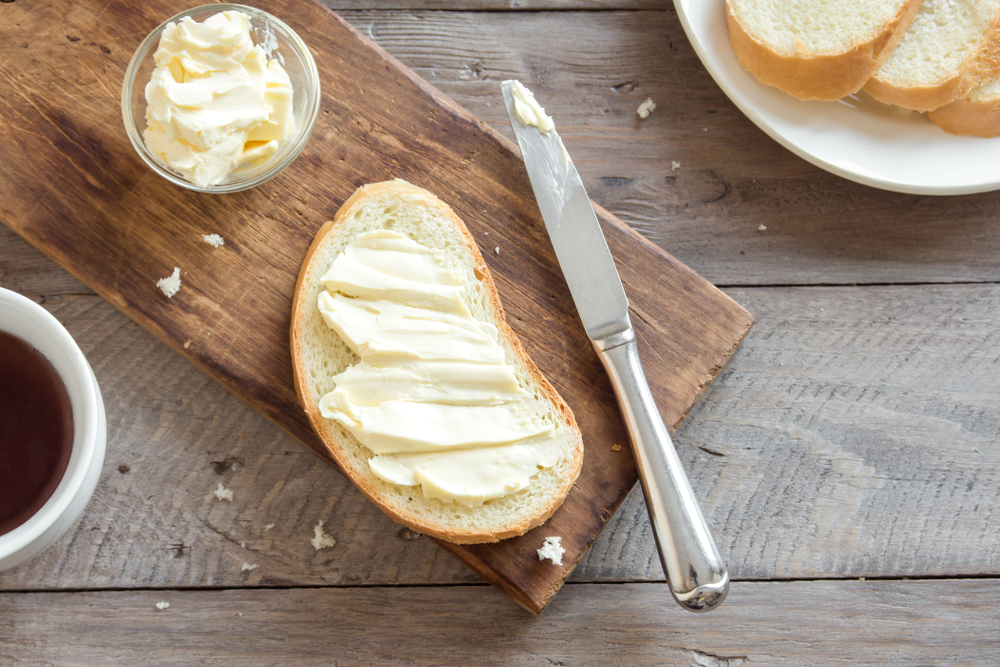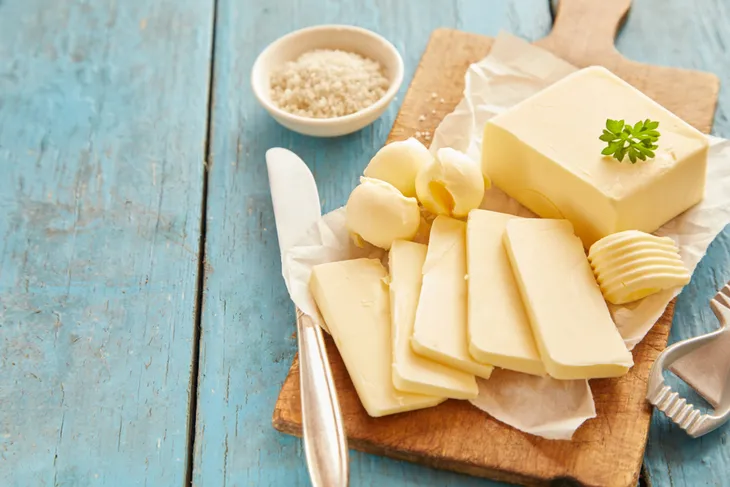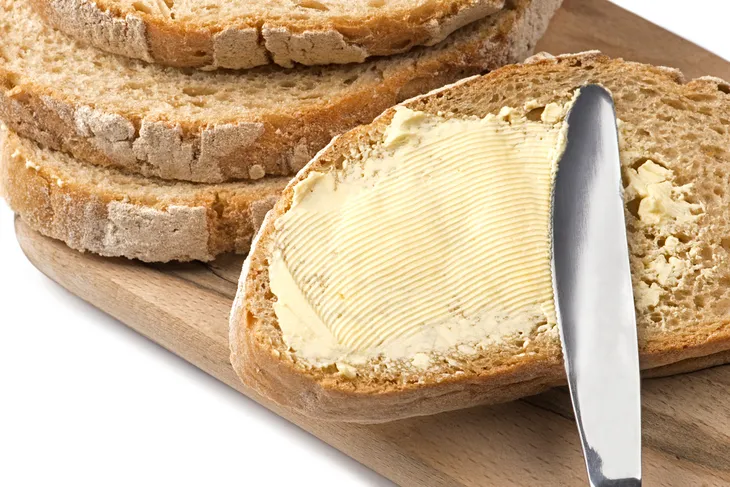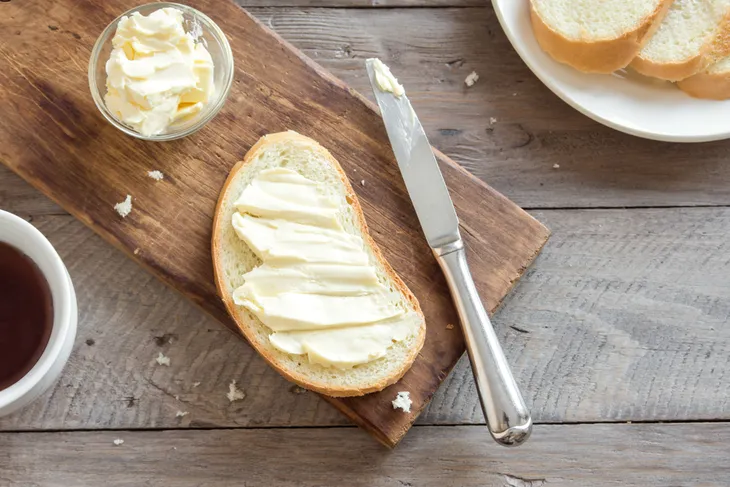Today, I’d like to settle an age-old squabble between butter and margarine when it comes to settling once and for all—which of these spreads on breads is healthier? Let’s take a look at the ingredients, nutritional information, and let the experts clarify what’s exactly under the lid when it comes to these popular spreads…
How is Butter Made?
It’s an age-old slippery debate between butter and margarine. For years, butter got the thumbs down from health professionals because of its high saturated fat (that’s the bad kind) content. And why was that?
As a basic rule, foods derived from animal fat sources always contain more saturated fat, which increases LDL (bad) cholesterol. Like it or not, butter lovers are primarily eating animal fat in the form of cow’s milk fat. To make butter, the dairy—usually cow’s milk or cow’s cream—is shaken or churned vigorously until it reaches a semisolid state.
What Exactly is Margarine?
To this day, experts at the Mayo Clinic still consider margarine the healthier choice because it’s made with vegetable oils. That means margarine is made with mostly unsaturated (or good) fats—such as monounsaturated and polyunsaturated fats, which work reduce low-density lipoprotein (LDL), or “bad,” cholesterol.
However, even though physicians consider vegetable-based margarine a heart-healthier choice—not all margarines are alike—especially when many contain partially hydrogenated plant-based oils, which produce Trans fatty acids. So yes, margarine contains its fair share of Trans and saturated fats as well—unless you specifically purchase varieties with no Trans and saturated fats. Be sure to examine those ingredients closely to be sure.
Butter’s Nutritional Goods
Numbers don’t lie. And in the case of nutritional data, traditional butter in stick form serves up roughly 100-calories per tablespoon. When it comes to the heart-clogging attributes of butter—consider the 30-milligrams of dietary cholesterol (that’s 10-percent of your daily recommended dose) and the 11-grams of fat (7-grams of which are “bad” or saturated fat) per serving.
Whipped butter typically contains less fat and calories due to its lighter, airy consistency. However, if you stand by using solid butter, you can still shave off half the fat and calories if you opt for a light or low-fat variety infused with water or gelatin, which helps maintain the solid consistency. You can also seek out a butter blend made with canola oil or olive oil, which lowers the overall bad cholesterol and saturated fat content and still tastes pretty yummy in baked goods.
Is Margarine Any Better Nutritionally?
Margarine might be lower in fat (at 2-grams each in trans and saturated fats per tablespoon), but registered dietitians and nutritionists warn that many people make the mistake of slathering on twice as much to make up for lack of flavor.
With margarine the general rule is the softer the spread—the healthier it is for your heart. And like butter, light or low-fat margarines shave off a decent amount of fat and calories due to added water and fillers.
According to the Experts…
When it comes to heart health, research from the American Heart Association recommends skipping both butter and margarine in favor of another soft, trans-fat-free, spread. Basically, if the ingredients note partially hydrogenated oils—there’s trans fats in the tub—even if the label promises “Trans fat free”!
Always check the label and opt for a spread with no Trans fats and as little saturated fat as possible. Remember, it’s the fat that adds up quickly if you smear on a little too much or have seconds.
The Slippery Bottom Line…
Butter and margarine lovers probably don’t want to hear it, but in the end it’s the bigger picture that matters most when it comes to heart health.
And that means adopting a diet rich in plant-based foods and low in saturated and Trans fats, as well as committing to a lifestyle that makes regular physical activity an ongoing priority.
Healthier Alternatives to Butter and Margarine
For a delicious bread topper try switching your attention to healthy fat alternatives—try a drizzle of olive oil mixed with balsamic vinegar. Or opt for thin layer of mashed avocado as a sandwich spread.
For cooking, reach for a bottle of monounsaturated fatty oils (i.e., plant-based oils) for sautéing and frying foods. And if you insist on butter or margarine just be sure to keep the portion small. Less butter or margarine equals fewer calories and bad fats.










